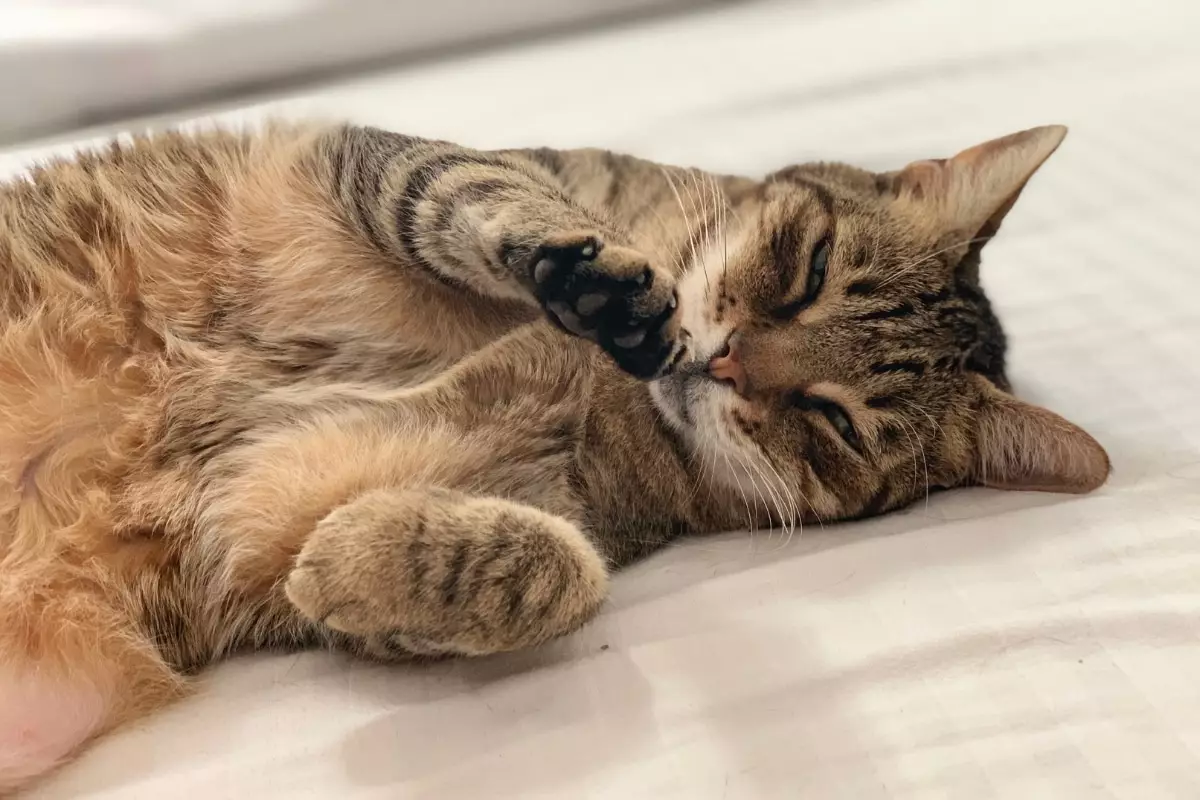Cats, with their diverse personalities and clever antics, often mystify their human companions. Unlike dogs, with their exuberant displays of affection, cats exhibit more subtle ways of communicating their desires and needs. Understanding these intricate behaviors is essential in ensuring that our feline friends feel cherished and cared for. This article will explore the nuances of cat behavior, helping you discern what your cat is truly trying to convey and how you can enhance your relationship with them.
If your feline companion has been increasingly seeking your lap as a resting place, it’s likely they are in search of warmth and affection. Cats are inherently social creatures that value comfort; thus, when they curl up next to you, it signifies trust and a desire for companionship. To foster this bond further, schedule regular cuddle sessions designated solely for snuggling. Such moments can significantly strengthen your relationship and create a reliable source of warmth and comfort for your cat.
One fundamental way cats communicate their desires is through vocalizations like meowing or purring. These sounds are not mere background noise but requests for interaction, be it for play, food, or simple attention. When you notice increased vocalization from your cat, it’s a call to action. Engaging with them in response to their vocal pleas not only provides them with the validation they seek but also reinforces your bond. Conversely, ignoring these signals might foster resentment or anxiety within your pet.
Your cat may occasionally surprise you with “gifts”—toys, or in some unfortunate cases, real prey. This behavior is more than mere play; it represents a desire for shared activities. By engaging in playtime when they present you with toys, you validate their efforts to bond while simultaneously keeping them mentally stimulated and physically healthy. To maintain this playful spirit, provide a diverse selection of toys to chase and bat around, keeping boredom at bay.
Cats can be particular about their meals, and if you observe them pawing at their food bowl or showing anticipation at mealtime, it could indicate a desire for more variety or a higher quality diet. By introducing a range of flavors and textures into their diet, you can keep their culinary desires satisfied. Occasionally rotating through different food options or offering delectable treats will make mealtime a special occasion rather than a monotonous routine.
The Importance of Scratching Post Variety
Physical expression is crucial for cats, and scratching is an innate behavior that fulfills various needs, from maintaining their claws to marking territory. If your cat is persistently scratching furniture or other household items, this could signal that they need more interesting alternatives. Investing in various scratching posts or pads and placing them in preferred locations can deter destructive behavior while allowing your cat to indulge their natural instincts.
Cats are known for their meticulous grooming habits, but when you notice excessive grooming or new habits, it may be time to step in with care. Regular brushing not only aids in maintaining their coat but also serves as an excellent bonding experience. Find grooming tools suited for your cat’s fur type to ensure a pleasant experience for both you and your pet. This routine can also help reduce stress and enhance their comfort.
Cats often seek solace in cozy hiding spots, especially during stressful times or changes in their environment. If your feline friend is appearing more withdrawn, consider creating safe spaces that offer comfort and security. Providing soft bedding in quiet areas allows them to retreat and re-energize, reinforcing their feeling of safety within your home. Being attentive to their need for solitude is vital in ensuring their emotional well-being.
Understanding Body Language
Cats are expressive creatures, and their body language can be very telling. Subtle cues such as a twitching tail or an arched back often indicate a request for interaction or play. Responding to these non-verbal signals with gentle gestures or playtime builds trust and strengthens your connection. Similarly, prolonged eye contact paired with soft strokes demonstrates your affection and understanding of their needs.
Rest is fundamental for your cat’s well-being. If you notice changes in their sleeping habits or heightened restlessness, it may indicate the need for new activities or adjustments to their resting areas. Creating multiple comfortable napping spaces throughout your home allows them the freedom to choose where they feel most relaxed, leading to better sleep quality.
Spoiling your cat transcends the act of providing treats or toys; it involves recognizing and fulfilling their specific needs and preferences. By becoming attuned to their subtle cues and behaviors, you can offer the love and attention that strengthens your unique bond. Ultimately, by acknowledging these signs from your feline friend, you create an enriched environment that cultivates their happiness and well-being, allowing both you and your cat to thrive together.

